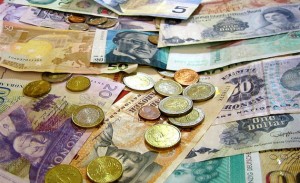The National Treasury says that it has enough foreign currency deposits to repay its debt after the country’s sovereign credit rating was downgraded by credit ratings agencies Fitch and Standard & Poor’s.
Fitch downgraded South Africa’s credit rating from BBB to BBB-, which is the lowest investment-grade rating and just a level up from junk status. Fitch also changed its outlook on the country from negative to stable.
Standard & Poor’s affirmed its BBB rating but changed its outlook from stable to negative.
A lower investment rating means that a higher risk is attached to South Africa’s debt and that the country therefore needs to pay more when it borrows money. A lower rating also means that the country becomes less attractive to investors.
The National Treasury said that it had sufficient foreign currency deposits to meets its debt repayments.
“While Fitch and S&P rates our foreign currency debt riskier than our local currency debt, government’s total foreign currency debt as percentage of total debt is currently below 10%,” the Treasury said in a Bloomberg report.
“Government holds foreign currency deposits that are sufficient to meet its current and medium-term foreign currency commitments.”
The Treasury added that the government was aware that the country’s economic growth needed to be improved in a sustainable manner and that was why it has made stabilising the country’s power supply an immediate priority.
The state also needs to tackle labour relations to avoid more protracted strikes and improve the governance of its state-owned firms that are draining financial resources.
